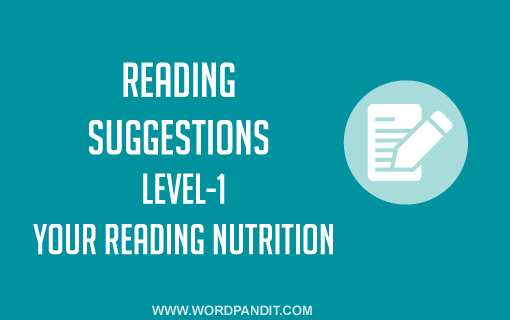Reading Suggestion-1
Article Name:No surprises in Egypt’s election
Source:The Hindu
Category: Politics
Summary for this article:
This article deals with the topic of Egypt elections. The author starts with how Egypt’s election last week was democratic only in name. President Abdel Fattah el-Sisi, a former general who had ousted the Muslim Brotherhood from power in 2013, was never expected to struggle to secure a second term. Though the official result is yet to be announced, a landslide victory has been a certainty all along.
His lone challenger, a late entrant thrust forward to save the government from embarrassment, was someone who had declared himself a staunch supporter of the President’s bid for re-election while the other opponents were made to leave the bid. Even the social content media was monitored that it deemed contrary to the “national interest” ensured that the election was anything but a democratic and informed exercise of the popular will.
The author then talks about the long poor condition of their economy and the further debt from IMF and the devaluation of their currency has deepened it . Inflation and the accompanying rise in the cost of borrowing are taking a toll on ordinary people as well as businesses. The author concludes that the things that have been done smoothly are the 2017 acquittal of Mr. Mubarak in a highly controversial trial relating to the killing of hundreds of protesters and secondly granting long sentences to the opposers in the 2013 ouster. The author emphasises that the current government should work on greater transparency and accountability by restoration of basic democratic freedoms and respect for the opposition it should set an example.
Words to learn from this article:
Backlash:a strong negative reaction by a large number of people, especially to a social or political development. Entrant: a person or group that enters or takes part in something. Cynicism: an inclination to believe that people are motivated purely by self-interest; scepticism. Squeeze: obtain (something) from someone with difficulty.
Reading Suggestion-1: Click to read full article
Reading Suggestion-2
Article Name:Indians Don’t Care About Privacy, But Thankfully The Law Will Teach Them What It Means
Author Name:Shivam Vij
Source:Huffington Post
Category:Politics
Summary for this article:
This article deals with the topic of right of privacy in India; the topic of US surveillance and how currently Indian’s do not care about their own privacy.
The author starts with how it was revealed that US was tracking the entire world and their personal lives through technology. It was doing so in breach of law, violating privacy of citizens, both American and foreign. The author then talks about a poll in which Only 33% Indians objected being subjected to surveillance. The only country more okay than Indians with American surveillance was Nigeria.
He further talks about how Indians do not care about privacy.But when people migrate to big Indian cities, they love the anonymity of the big city, and sometimes loathe it too, as social support structures are absent . Furthermore he states that the government wasn’t wrong that privacy is a concern of the elites. Even The Modi government repeatedly argued in court that citizens don’t have the right to privacy, not even the absolute right to their bodies. But Our Constitution places the individual at the forefront of its focus.
The author concludes that now law has made right to privacy a fundamental right people will learn to respect their privacy as law is a great teacher . This will affect every aspect of our lives . He also expresses his happiness on implementation of western ideas such as fundamental rights, electoral democracy and now privacy.
Words to learn from this article:
Scandal:an action or event regarded as morally or legally wrong and causing general public outrage. Asylum:the protection granted by a state to someone who has left their home country as a political refugee. Triumph: a great victory or achievement. Surveillance: close observation, especially of a suspected spy or criminal. Elite: a select group that is superior in terms of ability or qualities to the rest of a group or society. Percolate: spread gradually through an area or group of people.
Reading Suggestion-2: Click to read full article
Reading Suggestion-3
Article Name:Fake News Busters
Author Name:Rajesh Ramachandran
Source: Outlook
Category: Current Affairs
Summary for this article:
This article showcases the views of the writer on the matter that directly points the finger on the print media. He writes this article in the wake of the issue of rules and guidelines for journalists to follow by the Information and Broadcasting minister of India.
The writer stresses on how the print media has always been targeted for spreading the fake news when in reality the biggest fake news outlets are the right-wing hate factories like the TV channels, communal, websites, and WhatsApp. The writer does not completely deny the possibility of print media carrying fake news, but he informs that the newspapers and magazines largely keep off from the territory of fake news.
The writer strongly condemns the issue of rules and guidelines for the journalists. He could not make sense of the rules as he believes that the journalists of mainstream media are generally a lowly paid, miserable and idealistic creatures.
Words to learn from this article:
Venom: a poisonous substance secreted by animals such as snakes, spiders, and scorpions and typically injected into prey or aggressors by biting or stinging. Spewing: expel large quantities of (something) rapidly and forcibly Accredited: give credit to (someone) for something. Draconian: (of laws or their application) excessively harsh and severe. Incense: a gum, spice, or other substance that is burned for the sweet smell it produces. Dictum: a formal pronouncement from an authoritative source. Dubious: hesitating or doubting. Unscrupulous: having or showing no moral principles; not honest or fair Lobbyist: a person who takes part in an organized attempt to influence legislators. Libellous: containing a libel ( a published false statement that is damaging to a person’s reputation; a written defamation)














